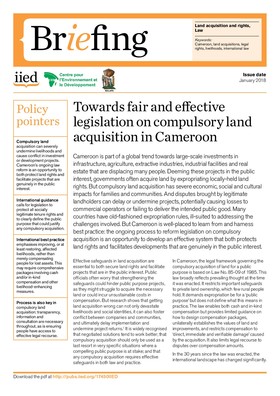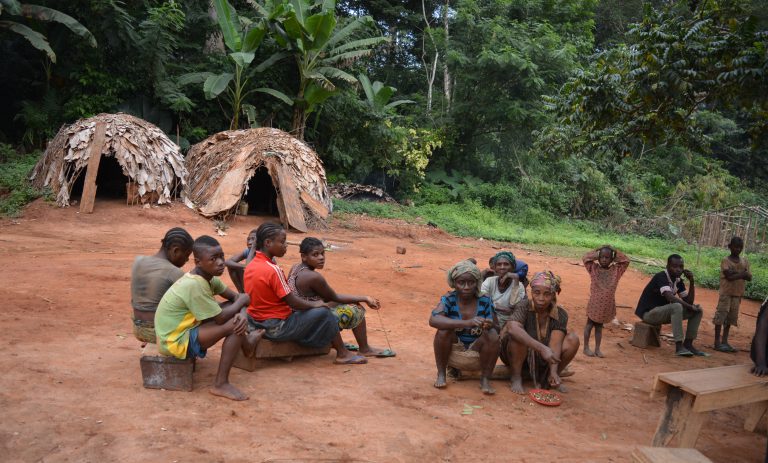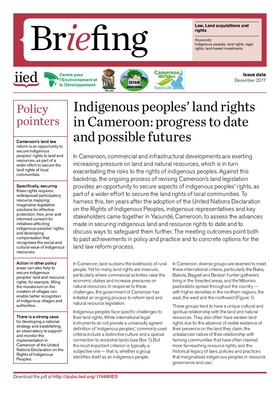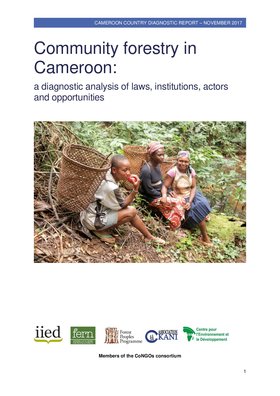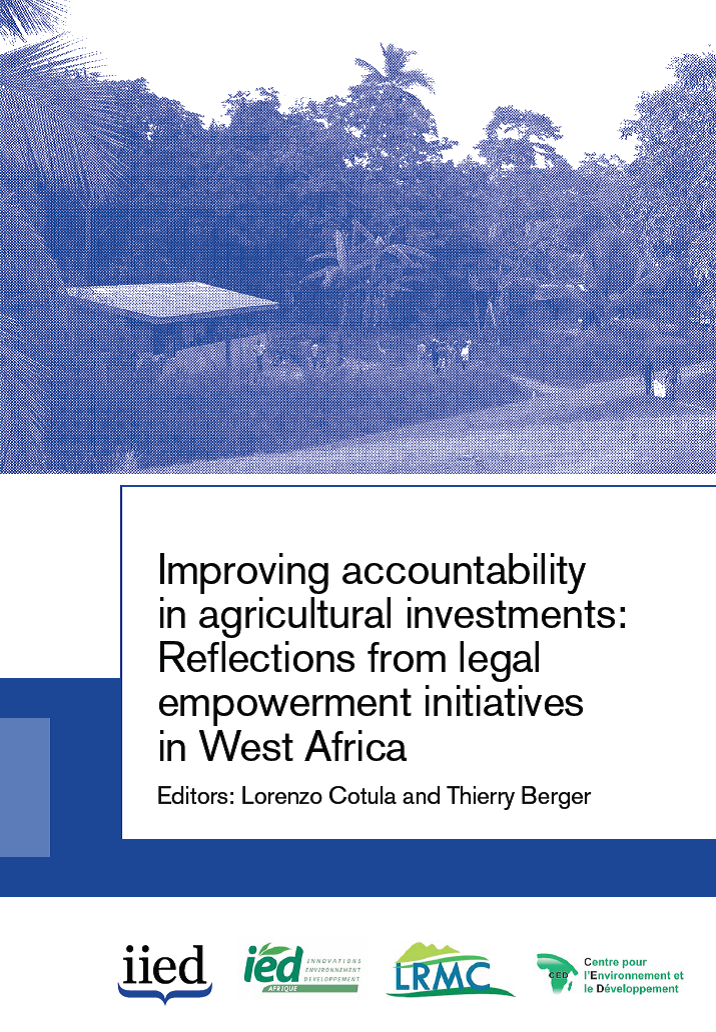Towards fair and effective legislation on compulsory land acquisition in Cameroon
Cameroon is part of a global trend towards large-scale investments in infrastructure, agriculture, extractive industries, industrial facilities and real estate that are displacing many people. Deeming these projects in the public interest, governments often acquire land by expropriating locally-held land rights. But compulsory land acquisition has severe economic, social and cultural impacts for families and communities.

